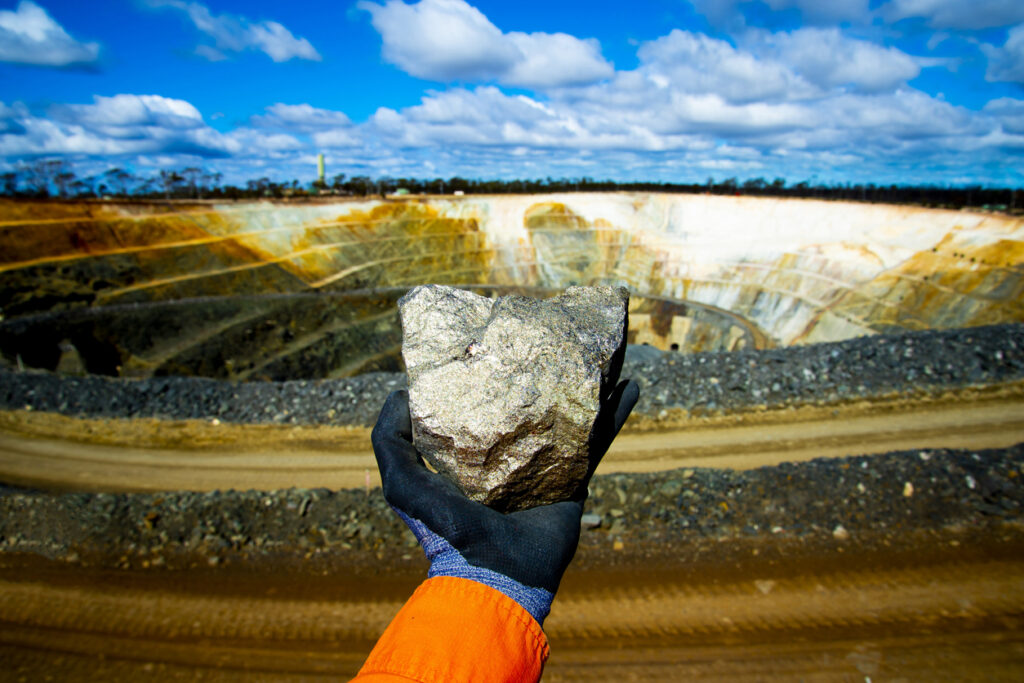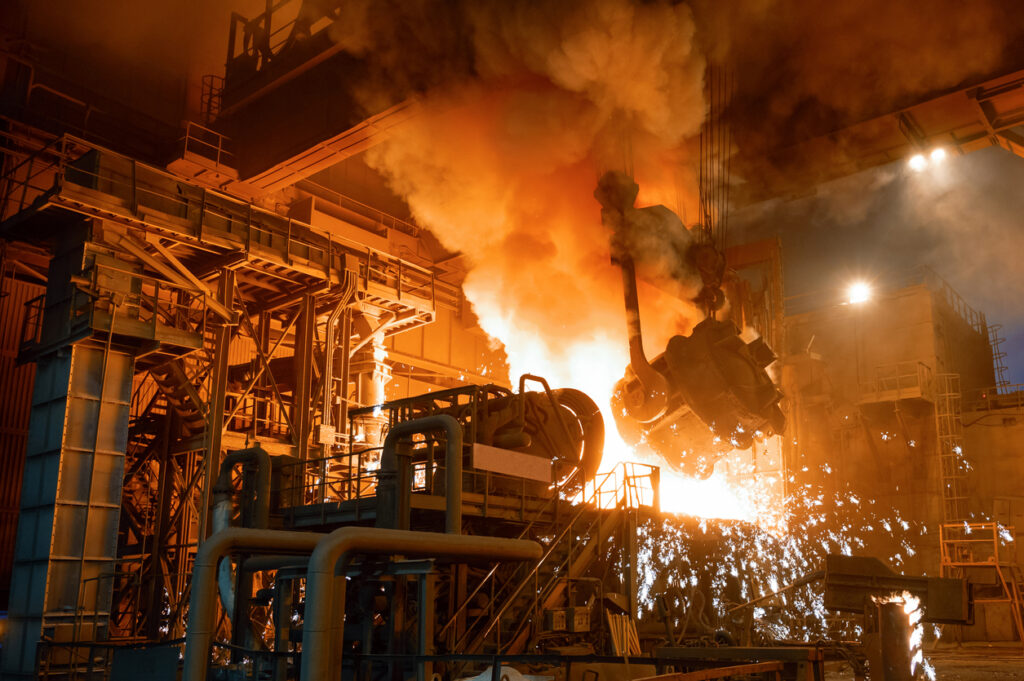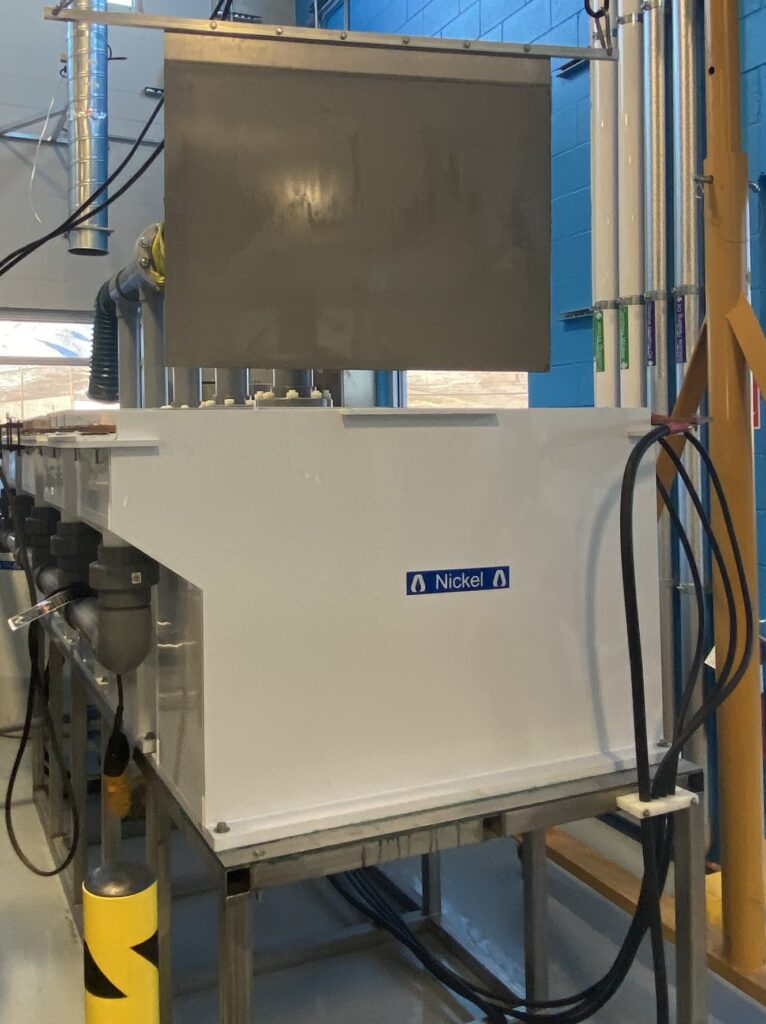
As the global transition towards clean energy accelerates, demand for lithium-ion batteries continues to surge. The transition from an economy primarily powered by fossil fuels to one built upon clean energy sources and the required critical minerals is bringing new attention to metals like nickel that will play a major role in electrification.
This post discusses the importance of nickel in the clean energy sector, the challenges in recycling nickel, and how sustainable recycling can help create a circular supply chain to power the US economy.
Clean Energy: Powered by Nickel
Nickel is essential to the global economy due to its widespread use in various industrial and technological applications. Its corrosion-resistant and heat-resistant properties make it a critical component in the production of stainless steel, which is utilized across the automotive, aerospace, and construction industries. Additionally, nickel’s increasingly vital role in the manufacturing of rechargeable lithium-ion batteries contributes significantly to the growth and development of the clean energy sector, further underpinning its importance in the global economic landscape.
Nickel is particularly sought after as a key constituent in the cathode material of high-performance lithium batteries. Nickel can enhance energy density, allowing for greater storage capacity and longer operational life, which is essential for the widespread adoption of electric vehicles and renewable energy systems. Moreover, its impressive stability and corrosion resistance properties make nickel ideal for use in various clean energy applications, including wind turbines and solar panels.
Consequently, this versatile metal is indispensable in our pursuit of a sustainable, low-carbon future.
Current Nickel Production and Mining
Approximately 2.5 million metric tons of nickel is mined around the world each year, with only about 10% coming from recycled scrap. The environmental impacts of nickel mining and processing, including deforestation, water pollution, and greenhouse gas emissions, emphasize the urgent need to increase recycling rates and develop more sustainable extraction methods.
Countries like Indonesia, which are rich in nickel deposits, have become major sources of the metal. Unfortunately, the extraction of nickel in these regions often involves environmentally harmful practices, such as deep-sea tailings disposal and deforestation. This unsustainable mining has long-term negative consequences for the environment and local communities.
As global electric vehicle (EV) production continues to rise, the demand for nickel will surge, making it crucial to address this disparity between mining and recycling to ensure a sustainable supply chain for clean energy applications. By investing in recycling infrastructure and promoting a circular economy, we can mitigate the environmental consequences of nickel mining, while still meeting the growing demand for this essential metal in the clean energy sector.
Nickel Recycling Today
Current methods of recycling nickel are fraught with challenges. Traditional recycling processes can be energy-intensive, costly, and generate harmful emissions that must be mitigated, which counteract the benefits of using recycled nickel in sustainable applications.
The primary pathway to recycling nickel today is called pyrometallurgy – where scrap metals are put into high temperature furnaces to try and recover the most valuable materials. This method requires a lot of energy and is often powered by fossil fuels, consuming large amounts of water and producing significant emissions.
While pyro-recycling with furnaces can be effective in some scenarios, this recycling methods often struggle to separate nickel from other metals found in lithium-ion batteries, such as cobalt and manganese, making it difficult to recover the valuable material in a usable form.
To enable a truly sustainable clean energy future, it is imperative that innovative recycling technologies be deployed that can overcome these obstacles to efficiently recover nickel from lithium-ion batteries, minimizing both environmental impact and the reliance on virgin materials.
Sustainable Lithium Battery Recycling
Aqua Metals has developed a groundbreaking electro-hydrometallurgical lithium battery recycling solution that addresses the challenges in nickel recycling.
Instead of using high-temperatures to melt metals down, Aqua Metals’ Li AquaRefining technology employs a low-temperature, innovative application of electroplating in a closed-loop system.
Electroplating is an electrochemical process that involves extracting metal ions from a solution by introducing an electric current. In effect, the desired metal ions are captured individually using electricity, recovering desired metals in a very high-purity form without the use of a polluting furnace.
This process, which is far more environmentally friendly than traditional recycling methods, efficiently recovers and separates valuable metals like nickel, lithium, and copper from spent batteries.


The Future of Nickel
Nickel is essential for the clean energy sector, and it is crucial that we establish a circular supply chain for this vital metal. Demand for this adaptable high-performance metal is surging alongside the inexorable growth for clean energy technologies, electric vehicles, and energy storage systems.
By embracing innovative recycling solutions like Aqua Metals’ electro-hydrometallurgical process, we can secure a sustainable supply of nickel, reduce our reliance on environmentally harmful mining practices, and accelerate the electrification of the US economy.
You can learn more about sustainable lithium-ion battery recycling and track progress on our Lithium Pilot Recycling Hub.

